
Gianni Canova, as president of the jury for the Debut Film, was a choice proudly endorsed by Alberto Barbera, who praised his competent, intelligent, and independent perspective, far from the increasingly common trends of critical conformity. We interviewed him to discuss the present and, above all, the future of cinema, navigating between solid convictions and strong hopes.
As the President of the Debut Film jury, you award the best debut feature film across the various sections of the Festival. Can you explain the rules the jury has established to function effectively?
The Debut Film jury evaluates debut works from all sections of the festival: Competition (though there are no debut films in this year’s lineup), Horizons, Extra Horizons, Critics’ Week, and Giornate degli Autori, totalling around twenty films, with an average of three per day. We do not analyze them immediately after viewing; instead, we let them settle for a few days. We plan three meetings before the final one, where we discuss each work and set aside those we consider worthy of further consideration. Keep in mind that our jury awards a single prize, unlike other juries that have multiple awards to distribute. Our prize also comes with a $100,000 award. The basic criterion we have set for ourselves is that our task is not to map out the existing landscape, but to reward potential future talents. In other words, noble content alone is not enough; we’re looking for visions of future cinema.

Mona’s life flows peacefully, but when her son Joël confesses his relationship with Océane, a fellow member of the community for people with disabilities, and reveals that a baby is on the way, her tranquility is completely shattered. This forces Mona to confront decis...
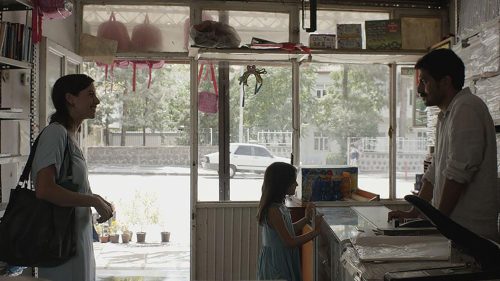
Just another day in the life of Eyüp, a poor boy who is involved in the drying and salting of tomatoes under the scorching summer sun, anxiously waiting for his daily wage. A story to understand how and how often each of us comes into direct or indirect contact with death; ho...

American director Sarah Friedland’s debut film tells the story of Ruth, an eighty-year-old woman about to enter an assisted living facility, as she navigates conflicting emotions and desires in the search for a new definition of her identity and memory. The film was made in ...
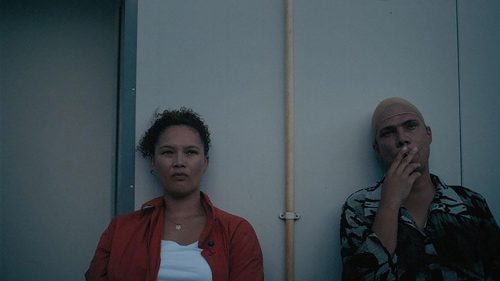
Young Carissa lives with her grandmother, Wilhelmiena, in a small village in the Cederberg Mountains of South Africa. Seeing her spend her days on her phone, completely inactive, Wilhelmiena urges her granddaughter to apply for a job at a new golf club under construction in th...
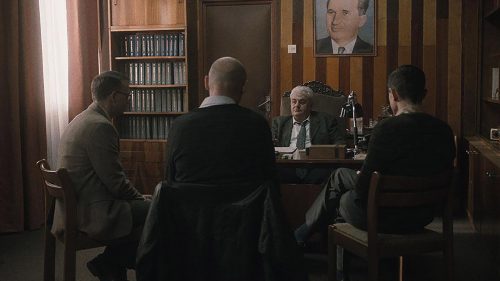
Romania, December 20, 1989. The country is on the brink of revolution, and while New Year’s Eve shows celebrate Ceaușescu, young people take to the streets to protest against the regime. Amid one of the most widely televised revolutions in history, the director focuses ...

Hassan is thirty years old and lives with his mother in the suburbs of a large city. Life is tough, and the young man struggles every day with the desire to quit a job that does not fulfill him, yet he is urged by his mother to hold on to the family’s only source of income. ...

The happy and carefree life of young student Jindřiška falls apart when she discovers that her father is drowning in debt. One morning, she wakes up to find the house filled with bailiffs, seizing everything and searching for her father. But they aren’t the only ones; ...

At the heart of the story are two brothers, forced by an authoritarian father to enlist in the army, which profoundly impacts their lives. Their relationship with each other and with their father drives the unfolding events, leading to unexpected twists during a journey in whi...

Mixing popular superstitions from Southeast Asia with raw realism, feng shui with voodoo rituals, the Vietnamese director tells the story of Tam, a middle-aged woman who, after discovering her husband’s extramarital affair on live TV, decides to win him back through a dark m...
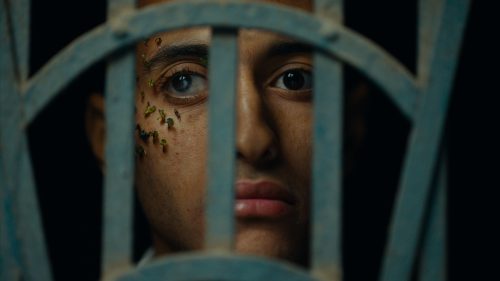
The young doctor Bahaa receives a visit in his clinic from Mahdy, an old friend suffering from a strange illness: mint is sprouting from his body, and its scent begins to attract the strange shadows that infest the city. In his first feature film, the Egyptian director constru...
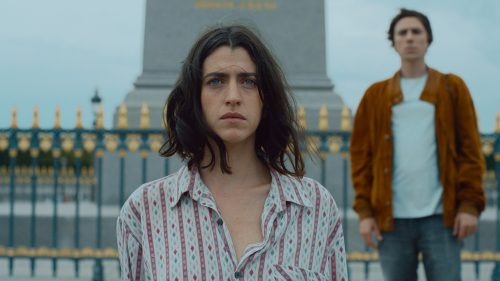
With this film, the lyrical and quirky style of the Anglo-French director takes on dark undertones while maintaining the original and cosmopolitan aesthetic that has earned him numerous awards. Two young people meet by chance along the Parisian boulevards and discover a shared...

A violent hurricane is about to hit the city of Atlantic Beach, Florida. Despite evacuation orders, some choose to stay: a stealthy storm chaser, two young siblings, and a former country singer preparing for her final performance are the protagonists of this American drama, wh...

First film by the Turin director of Iranian origin and the only Italian film in competition at the 2024 Critics’ Week, the feature follows the story of Issa, an undocumented immigrant who, after being fired by his employer, reinvents himself as a delivery rider. However, mis...

Matthias is handsome, cultured, and intelligent, and he works for an agency that provides “friends for hire,” where he offers his companionship on a per-service basis. However, despite excelling in roles as a model boyfriend or brilliant son, he struggles to find his true ...

Directing her first feature film, the Brazilian documentarian delves into the heart of the Amazon to give a voice to thousands of young women, silent victims of domestic violence. The story begins in Marajó, the largest river island on the planet, where thirteen-year-old Marc...

After a long marriage, Sima and Behzad decide to go their separate ways, while their young daughter Minoo is involved in a relationship with the teenager Keyvan. With a narrative that provides a social snapshot of modern Tehran, the first feature film by Iranian artist and dir...

Makenya is thirteen years old and pregnant. In addition to the unwanted pregnancy, there is the risk that her family will be suddenly relocated. In the small village surrounded by a sugarcane plantation, the only source of livelihood for the entire community, agricultural auto...

In her first feature film, the French screenwriter, who was previously an assistant director for Jacques Audiard, tells the story of Joy, a young orphaned and very devout woman whose horizon of events is limited to the church in the small, dull town where she lives. An unexpec...

Saina, a day laborer and a nighttime performer, plays himself in this spectacular debut by the young Mongolian director Xiaoxuan Jiang. The film provides the audience with a candid portrayal of modern Mongolia, balancing between rural reality and capitalism. Against the backdr...
Let’s compare Nanni Moretti’s debut film I Am Self Sufficient, made 50 years ago, with today’s debut films, such as Aftersun by the young Scottish director, Charlotte Wells, or April by Dea Kulumbegashvili. These represent two opposite approaches to creating a debut film; today’s films are often born as near-perfect works, marked by flawless self-control, without any youthful imperfections. What has changed over the past 50 years? Can we study debut films as a genre that evolves over time, or are they simply individual expressions of unique talents?
Debut films can certainly be shaped by their historical context, particularly by the production mechanisms of their time. A few decades ago, when cinema was less reliant on external support, filmmakers could take risks and pursue independence more boldly than today. The complexities of producing a film today, particularly in securing funding, often push new directors to aim for a fully realized form right from the start. As for my personal taste, if I have to choose between a well-crafted film that follows well-trodden paths and an imperfect yet highly talented debut, I will always choose the latter.
If we consider the recent winners of the Debut Film award, we notice that many of them are filmmakers who have reached the age of 40. Can we still consider someone in their 40s as ‘young’ in the world of cinema?
It is never a question of age, it’s always a matter of mindset. That said, even in the Italian cinema’s most vibrant periods, there was a policy in place that made it much easier for young talents to break into the industry than it is today. Those in charge of the system should really be asking themselves some tough questions…
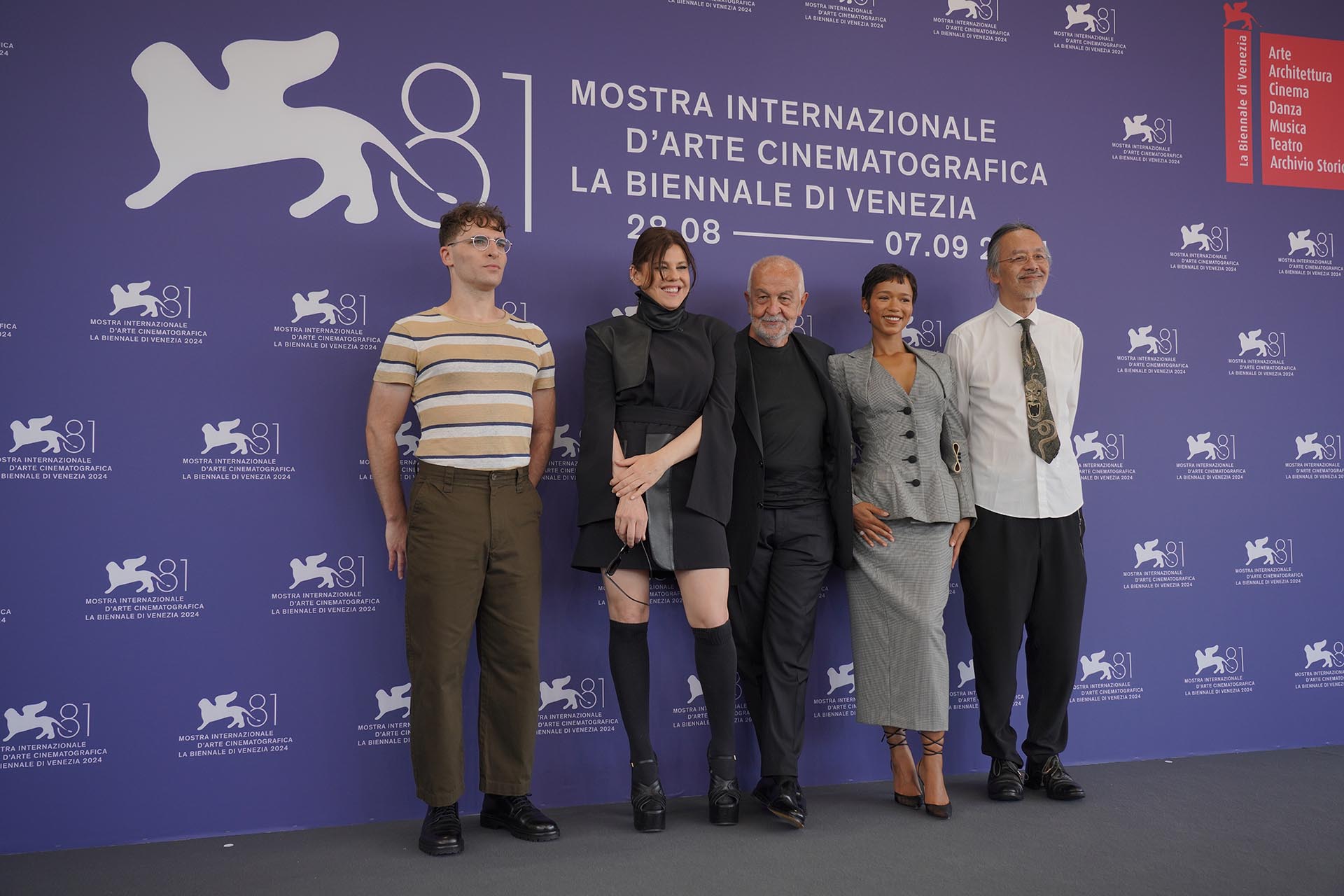
As the rector of IULM, professor of cinema at the same university, and the president of the Scientific Committee of the Experimental Center of Cinematography, what insights can you offer about the pathways for young people entering the world of cinema? At the Venice Film Festival, we see thousands of young film enthusiasts, and it raises the question: how many of them will actually be able to make a living from cinema?
First, we need to start viewing cinema as part of the broader audiovisual sector. By doing so, it’s clear that employment prospects increase significantly. Universities and schools must recognize the importance of training professionals, rather than focusing solely on creating the next Wim Wenders of Garbatella or the David Lynch of Quarto Oggiaro. When a 4-minute short is defined as ‘the first film of…’, it’s a sign that authorial narcissism is taking its toll. On the other hand, preparing professionals who can handle less auteur-driven productions, those that might be less refined but still contribute significantly to the audiovisual industry, is almost an obligation.
Cinema is evolving into a mass profession, much like design. It’s no longer just the domain of a few great masters surrounded by their favorite technicians. We must embrace this shift, which has dramatically expanded the traditional boundaries of cinema to include video games, series, streaming platforms, and new media. In this regard, Venice showcases two extremes: on one side, the restored Classics, and on the other, Venice Immersive. What are your thoughts on the role of music in cinema?
During my time here at Venice, as I’ve watched numerous films, I have reflected on the significance of music in cinema. When used in a banal or overly obvious way, music can detract from a film, while excessively refined music can overly amplify the audience’s sensations of pleasure. Music has a profound impact on the emotional chemistry of a film. I believe the Biennale should consider establishing an official award for best soundtrack.